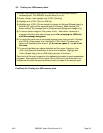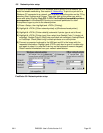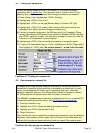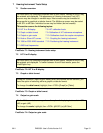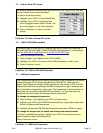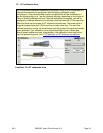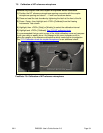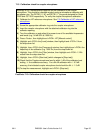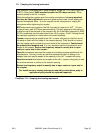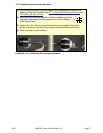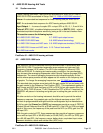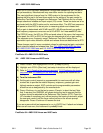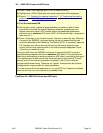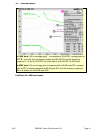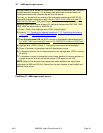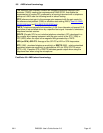
0611 RM500SL User’s Guide Version 2.8 Page 36
7.11 Coupling the hearing instrument
FastFacts 7.11: Coupling the hearing instrument
The RM500SL is supplied with 2 metal couplers, a type HA-1 (ITE) and a type HA-
2 (BTE). Note that an ANSI standard coupler for CICs does not exist. These
must be tested in the HA-1 coupler.
When threading the couplers onto the coupler microphone, it is very important
that they be firmly tightened to ensure a good acoustic seal. Avoid twisting the
coupler microphone cable – turn the coupler not the microphone or unplug the
microphone while tightening the coupler.
BTE instruments are coupled to the HA-2 coupler by means of a 3/8
th
“ (10 mm)
length of heavy wall #13 (2mm) earmold tubing. The only purpose of this tubing is
to seal the tip of the earhook to the coupler inlet. All of the tubing required by ANSI
S3.22 is machined into the metal stem of the HA-2 coupler. The #13 tubing should
be inspected regularly for cracks which will cause feedback.
Custom instruments are sealed to the HA-1 coupler with putty so that the end of
the eartip is flush with the inside of the coupler opening. Putty should not extend
into the coupler cavity or block the sound outlet of the instrument. Vents should
be sealed at the faceplate end. It is very important that the instrument be well-
sealed to the coupler. Excess low frequency output is usually due to open
vents or a poor seal to the coupler.
Open fit instruments must use the coupler and coupling system specified by the
manufacturer. This may involve a hook that replaces the open fit tubing or an
adapter tube that may be sealed to the opening of the HA-1 coupler with putty.
Receiver-in-canal instruments are coupled to the HA-1 coupler using putty to seal
the receiver module or soft tip to the coupler opening.
Excess low frequency output is usually due to open vents or a poor seal to
the coupler.
For health reasons, hearing instruments should be clean before putty is
applied and putty should be replaced frequently.



